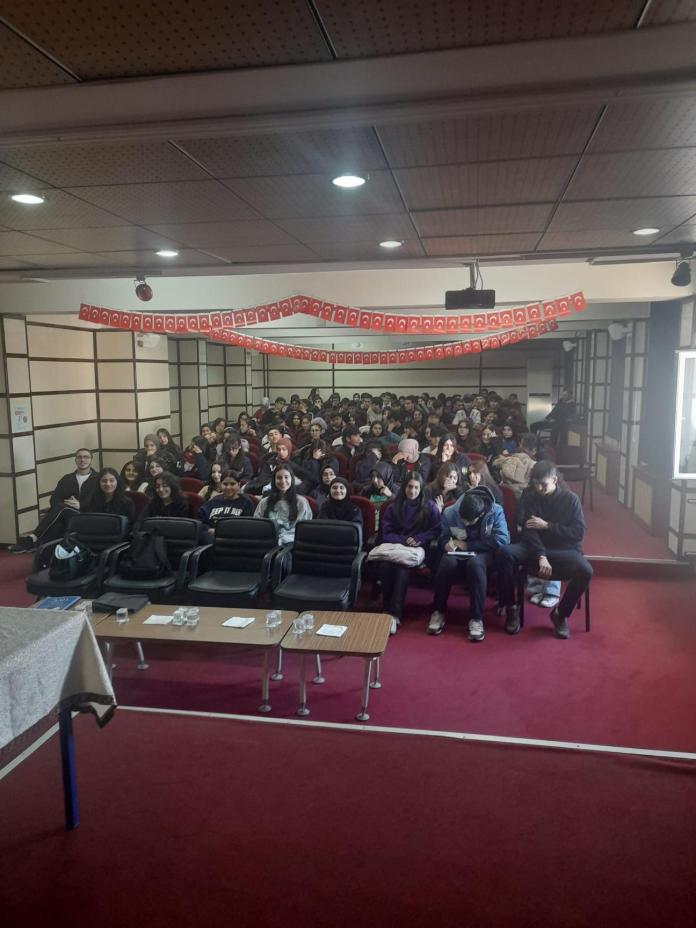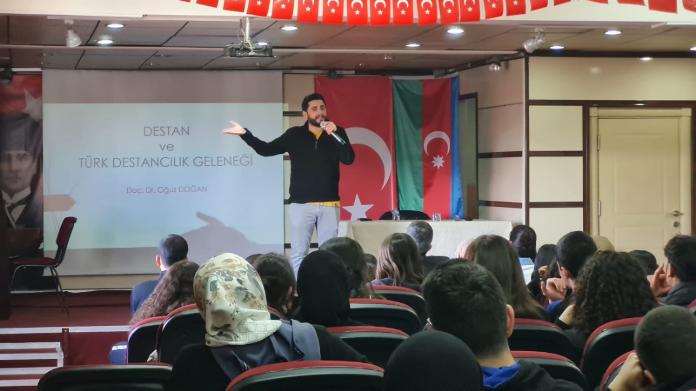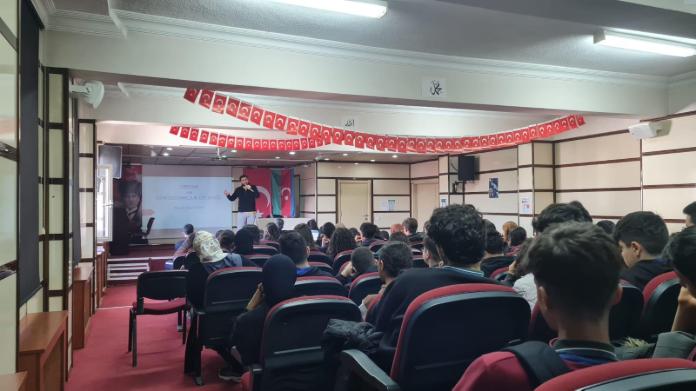Assoc. Prof. Dr. Oğuz Doğan, Director of the Iğdır University Center, delivered a presentation titled *"Turkish Epic Tradition and Oral Cultural Heritage"* at a conference held at Haydar Aliyev Science High School. The conference garnered attention for its in-depth exploration of the historical significance of Turkish epics, their functions within the oral cultural tradition, and their impact in the modern era..
Turkish Epic Tradition: A Historical Perspective
One of the primary focal points of the conference was the historical significance of Turkish epics. Assoc. Prof. Dr. Doğan emphasized that epics are pivotal narratives that have shaped the historical identity and collective memory of Turkish societies. Highlighting examples such as the *Oghuz Khan Epic*, *Migration Epic*, *Ergenekon Epic*, and *Manas Epic*, he underscored that these narratives serve as vital carriers of the Turkish nation's beliefs, traditions, and value systems.
Doğan delved into the identities and social statuses of the creators of epics, analyzing the socio-cultural context in which the epic tradition emerged. He also highlighted how Turkish epics differ from the oral narrative traditions of other nations, emphasizing their uniqueness within the framework of Turkish culture.
The Transmission Processes of Oral Culture
Assoc. Prof. Dr. Doğan examined, from an academic perspective, how oral culture functions as a form of social communication and the mechanisms through which epics are transmitted from one generation to the next. He detailed the roles of narrators, such as *ozans*, *baksıs*, and *kams*, as well as the ritualistic elements involved in the transmission of epics. Additionally, he discussed the influence of features such as melody, narrative rhythm, and anonymity on the cultural continuity of these epics.
Turkish Epic Tradition in the Modern Era
Another section of the conference focused on the reflections of Turkish epics in the modern era. Assoc. Prof. Dr. Doğan evaluated the transfer of the oral tradition into written culture and its influence on modern literature. He also analyzed the visibility of epic elements in contemporary popular culture, particularly in television series, cinema, and digital media, exploring their impact on the construction of contemporary Turkish identity.
Social Memory and the Function of Epics
It was emphasized that epics are not only literary texts but also crucial structures that shape social memory. Assoc. Prof. Dr. Doğan discussed how epics contribute to the construction of a collective identity by presenting historical events within a mythological framework, highlighting their critical role in the socio-cultural solidarity of societies..
Teachers and students attending the conference had the opportunity to gain in-depth knowledge about the epic tradition, one of the foundational elements of Turkish culture. At the end of the event, participants engaged in an academic and cultural exchange by asking questions related to the topic.
This conference, organized in line with Iğdır University's mission to engage with the community and share its academic knowledge with a broader audience, highlighted the importance of efforts to preserve Turkish cultural heritage and pass it on to future generations.


